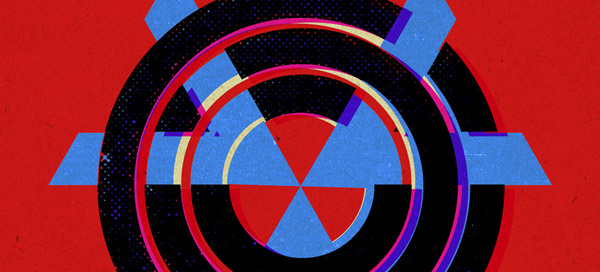Moxipop is going to be the home for most of my music writings right now, and following up my inaugural Okkervil River review is a few paragraphs about of my most anticipated albums of the year. It's good. It's great. It's not Album of the Year (The National is still holding on) but dang, you guys, this is going to be a beloved debut. This is either the making of a new indie institution or the inevitable stellar debut to unfortunate slump (hey mgmt.)
Review | I'm Not Alone I'll Never Be
 A moment of honesty: I've been disappointed by a lot of the recent efforts by the artists I hold highest: the xx, James Blake, Beach House, Youth Lagoon and the rest. It would be unreasonable to call any of their records bad, or even anything less than solid, but I was underwhelmed by their inability to recapture the magic that brought them to the spotlight.
A moment of honesty: I've been disappointed by a lot of the recent efforts by the artists I hold highest: the xx, James Blake, Beach House, Youth Lagoon and the rest. It would be unreasonable to call any of their records bad, or even anything less than solid, but I was underwhelmed by their inability to recapture the magic that brought them to the spotlight.
That is not the case with the National's TROUBLE WILL FIND ME. It could have been, and it looked like it was heading that way because the first two songs they released were blood-slowing trudgers. They man the album's first two slots, but after that, there is no slump for the National. I haven't listened to anything else this much all year. Lines are in my head when I wake, and the melodies dictate the motion of my day. It's as good as anything they've ever done, further cementing their place as a central, inclusive fixture in the indie rock landscape.
In all the National pieces I've read over the last couple of weeks, every music journalist and blogger seems to feel it necessary to address the criticism floating in the air. Meaning, I don't actually see a lot of the actual criticism, maybe they're random Twitterers and Hype Machine squatters, I just see a lot of pre-emptive defenses. By and large, this seems to be a beloved band, but I think we're pulled to justify them because, on paper, this band shouldn't work. In indie rock's culture of cutting edge coolness, where "trendiness" has been replaced by "relevance", a bunch of 40 year-olds in dark menswear making songs of constant sorrow shouldn't be an institution. But then you listen to them.
Review | But A Stone On The Shore
It's strange now to think of the time when dubstep was the cutting edge of music, with two opposing conceptions of it fighting over its soul. There was a hyper kinetic tooth-pulling dance noise led by a guy with long hair on one side, and then there was music that sounded like a long nap. At least, that's how critics and fans described it if they weren't drinking James Blake's Kool-Aid. Me, I came back for seconds.
It's obvious now that that battle is over, and the clear winner is the guy featured in hit movie soundtracks and Internet Explorer commercials. I don't think anyone lines Blake up with the dubstep label these days, and so now he's just his own thing. This brand of music with distorted, muffled bass steeped in pits of silence, like painting gray on black. On his follow-up album, OVERGROWN, there is a little more energy and fire, but for the most part it's still the cold earth and the deep sea.
Review | Just Human Troubles In The Modern Times
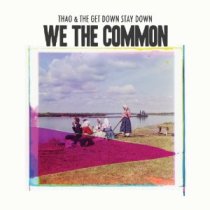
In my broad swath of college activism, one of the most interesting — and divisive — causes I took part in was centered on prisons. Depending on your ability to stomach radical politics, that can mean anything from prison reform to anti-police brutality, to the more revolutionary ideas like prison abolition in favor of ground-up rebuilding. So when I heard Thao Nguyen had been using her off-tour time to volunteer on behalf of the welfare of those incarcerated at Valley State Prison for Women, I was intrigued. It's a subject with lots of potential for conflict and compassion, but can be hard to communicate; great qualities for folk songs. One of the most central and important ideas in the cause is recognizing the humanity in all people, even the incarcerated. It's more of a challenge than you expect — you can see it in the incredulous reaction to the idea that there might be alternatives to prison as we know it. We're brought up with a common sense that dehumanizes and reduces prisoners, and it's that challenge that makes it fertile soil for provocative art.
For this background, Thao & The Get Down Stay Down are aptly named. But their latest, WE THE COMMON, is far from a strict concept album. It's still anchored in Thao's jam-band dives into the slow burn of relationships, but the prison motif can be stretched to accomodate even this. In her songs of self-blame and guilt. she treats her baggage as a cell. The finger point inward, like magnetic north on a compass, and its results are seen in lines scattered all across the album: "If by a third degree / you feel a guilt for me / then I've been a villain all my life" or "I come from regret / have I moved you yet? / don't let me touch you none." Then there's one of the highlight songs, "Move," a loose full bodied basher, where it erupts toward the end like a geyser: "Oh to be free!" she yells, as all her woes are made primal and universal. In a broad sense, you feel that Thao sympathizes with regret over past actions, being villainized, or the weight of binding ties. This is not to say a parallel is drawn. It does not say, in any way, that love is just like prison. But there's a commonality in the language that makes for useful tools of sympathy, not empathy.
Review | Dreaming of Angels
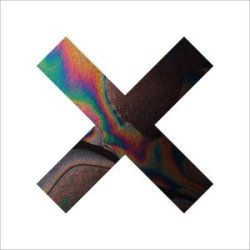 The xx's self-titled debut a couple of years ago was, in a word, exciting. Their sound explored new levels of sparsity and the vocals were almost lethargic in tone, but it was exciting. It was the cutting edge of mellow, employing a dark, high style to create a modern classic in cool melancholy. When it turned out Jamie xx was some kind of production genius, as evidenced by his hot-as-shit remixes of Gil-Scott Heron and Adele, they suddenly became part of today's upper tier. Forthcoming sea changers like The Weeknd took note of their night music and incorporated it into their own work. All this, and they hadn't even put out a sophomore album.
The xx's self-titled debut a couple of years ago was, in a word, exciting. Their sound explored new levels of sparsity and the vocals were almost lethargic in tone, but it was exciting. It was the cutting edge of mellow, employing a dark, high style to create a modern classic in cool melancholy. When it turned out Jamie xx was some kind of production genius, as evidenced by his hot-as-shit remixes of Gil-Scott Heron and Adele, they suddenly became part of today's upper tier. Forthcoming sea changers like The Weeknd took note of their night music and incorporated it into their own work. All this, and they hadn't even put out a sophomore album.
To promote the lead-up to their next album and show off a bit of the creative process, the xx did a smart thing in creating a Tumblr (or "soundboard"). The xx, whether they mean to or not, has a great brand and mythology. There's a specific look and atmosphere to what they do. It was sealed with that fantastic music video for "Islands". The Tumblr was curated with somber polaroids, the dark rainbows of oil in water, various images of static — all of it in service of building the atmosphere and mood of the album before we even heard a note. It was a herald of things to come.
It's also risky. Anticipation stacked high, because you can't just let people in like that and then deliver a lackluster album. The singles hinted at something scaled back and somehow even sparser, and now that COEXIST is making it's way 'round the net, the full scope of the retreat is apparent. This is not only an album that utilizes the power of silence more than its predecessor, this is an album that puts urgency in the attic.
Review | There's Always Been A Dream Of All
I wasn't sure if I would like the new Hot Chip album much. I have a high opinion of them, always have. But the last Hot Chip album was my favorite Hot Chip album since the last Hot Chip album. And the one before that, my favorite until then, too. It's turtles all the way down, and that's not a normal arc for a band this prolific. At some point, the wave is supposed to crest, and I'm supposed to run into an album that I can't really get into. In todays critical-blog culture, that seems to be the way of things unless you're a genre-king. The odds of Hot Chip topping themselves, again, seemed slim.
Review | An Anthem of Forgiving

I had the pleasure of watching Cohen perform at Coachella in 2009. I couldn't stay for the whole performance, just 3 or so songs, but I made sure "Hallelujah" was one of them. It's over-covered and most people think of it as Jeff Buckley song, but to see the man perform it himself, on a massive warmly lit stage with a hushed thousand others was special. I was already a fan, but after that I became an enthusiast.
Review | The Only End I Foresee
 Los Campesinos! is a reliable band. The way they're going, I don't know if i'll get tired of them, on record or in concert. It's not that they've been keeping pace with a radical evolutionary arc, but their formula is a direct hit on my music sensibilities. Bone-deep guitar hooks, intricately anecdotal lyrics, a twee sheen with a punk snarl -- if this is your wheelhouse, Los Campesinos! never disappoints. They say you should be the bands you want to hear, but more and more LC is my ideal.
Los Campesinos! is a reliable band. The way they're going, I don't know if i'll get tired of them, on record or in concert. It's not that they've been keeping pace with a radical evolutionary arc, but their formula is a direct hit on my music sensibilities. Bone-deep guitar hooks, intricately anecdotal lyrics, a twee sheen with a punk snarl -- if this is your wheelhouse, Los Campesinos! never disappoints. They say you should be the bands you want to hear, but more and more LC is my ideal.
HELLO SADNESS is their 4th record, and, yeah, it's good. There are some noticeable differences if you're that deep into Los Campesinos! analysis. If not, you'll probably like it as much as you liked 2010's ROMANCE IS BORING. Some of these changes can't be helped. LC! is very much an ensemble band and since their last album, they've lost 3 members (two on good terms and one under mysterious circumstances.) The holes have been filled, but the calibration is different. As good as it gets, I wonder if it's missing something that was in their last 3 LPs.
Forget Your Northern Eyes

I've also been hankering to do some music writing, because it's immediate and fun, but there haven't been any brand new releases that have spurred a lot of thoughts and deconstruction. There have been a lot that spurred thoughts in hindsight, but if I wasn't going to worry about timeliness any longer, maybe I should just go back to 2009 and talk about a favorite.
Hometowns is, centrally but not totally, about a change in location and a change in relationship. The bits and pieces of history are easy to gather: There is a guy, a girl, and a distance between them. The guy moves from far north of Edmonton to the bustling city of Toronto. What follows is relationship turbulence, the burden of disconnection from everything you've known, and the question of what to do when you're stranded.
Review | You're Not Alone In Trying To Be
 Conor Oberst has been a huge musical presence in my life for the last 7 years now. Whether it was with his main outfit Bright Eyes, or his solo project with the Mystic Valley Band or his supergroup Monsters of Folk, I have always had his emotive, jangly voice lingering in my mind. Seven years doesn't sound like a big deal until I consider that nothing else-- No book or film or show -- has stayed so consistently part of my tastes. It's strange, and a little scary, to think that one prolific artist has become such an impression in my mind.
Conor Oberst has been a huge musical presence in my life for the last 7 years now. Whether it was with his main outfit Bright Eyes, or his solo project with the Mystic Valley Band or his supergroup Monsters of Folk, I have always had his emotive, jangly voice lingering in my mind. Seven years doesn't sound like a big deal until I consider that nothing else-- No book or film or show -- has stayed so consistently part of my tastes. It's strange, and a little scary, to think that one prolific artist has become such an impression in my mind.
The People's Key is, possibly, the last Bright Eyes album. If it is, it's an end of an era, although I'm sure that Oberst will still be churning out songs in one band or another. It may not have the same aesthetic or goal, but it will come from a similar place. I looked forward to this album with the high hopes that it would be a culmination of everything Bright Eyes that swept old and new fans along for the ride.
I don't know if it does that, or even if it should. What's sure is that there isn't really an air of finality to this album, unless you put it there yourself. I like it and will listen to it until smoke comes out of my iPod, but that's already a given. Mostly, it's noted for moving away from the folksy/country/americana roots style that they had been playing up (to tremendous success) since I'm Wide Awake It's Morning. You'll find much less honky tonk organs and slide guitar crooning in the background. Instead, we're given a sound that's a little more new age yet also a little bit thrashing. Hard guitar and attempts at synth characterize the album's standouts.
If Cassadaga was the natural evolution of I'm Wide Awake It's Morning, then The People's Key comes from an alternate universe where Digital Ash in a Digital Urn was the hit album of the duo that got everyone's attention. It evolves the basic electronic sounds of Digital Ash, mixes it in with a lot of rock and roll, and wraps them around the Bright Eyes base of maximalist confessions.
Review | Cast Aside His Starving Eyes
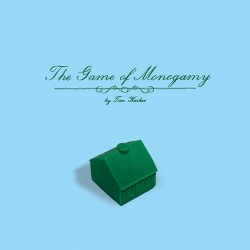
Sometimes, I worry about Tim Kasher. I know that's a completely ludicrous, arrogant feeling to have. It presumes that I, as an avid but distant fan, know what's going on in the private life and mind of an artist through his art. Conor Oberst never had a younger brother that died in a bathtub and Will Sheff is, in all likelihood, not a woman cheating on her husband on an island off the coast of Maine. It's common for artists to invent a fiction of a situation to channel emotional truth. Yet, for some reason, Kasher has always seemed like the most earnest and fiction-less songwriter I have known, for better or for worse.
This all started for me with the song, "Art is Hard." It was one of my first exposures to the band, and the fact that it was so self-aware and self-referential colored a lot of my early impression of the band. Here was a guy singing about songs. In the lyrics, the speaker laments the lack of emotional turmoil to milk for profit and song. In fact, the highest form of turmoil he has is, in fact, that very situation: passing the hat around and making money off of his misery. "Everything I hide ends up in lyrics," sings Kasher. Who are we to doubt his authenticity when he baldly addresses it?
Review | All I Couldn't Sing
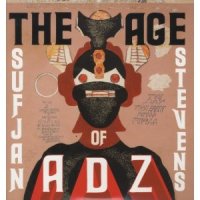
Sufjan Stevens is one of my musical heroes. I don't know when I decided this, but you can tell it's happened when you start making assumptions about an artist based on small inferences. You concoct a fascinating back story and song meanings that only you, the avid fan, understand. It's the reason you never meet your heroes, yet the basis of all hardcore fandom.
This tendency to fill in the blanks of your favorite artists is a little bit creepy, a little bit wrong, but completely within your rights as a fan with nothing better to do. It is part of the price of being a public artist; everyone gets to interpret and participate in art's communal conversation.
Sufjan Stevens is the kind of figure that gives you a lot of blanks. His interviews are rare, his songs are wrapped in mystery or mixed with fiction, and he is overall hard to figure out. We know that he is a writer, from Michigan, a multi-instrumentalist and a Christian. He also released one of the greatest albums in modern independent music, Illinois, which was a sprawling work about the state, past and present, fact and fiction. It won a million awards including album of the decade.
But Illinois was 5 years ago. Since then, he has put out a compilation of b-sides, a mixed-media orchestral suite, and commissioned a remix of one of his earliest electronic albums. In terms of original material, every once in a while we would get a song or two, small morsels at best, usually on charity-based compilations like Dark Was The Night.
Review | Here Lies Love
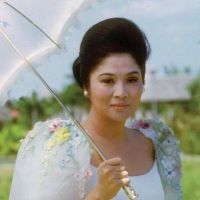
The album I want to write about, in pure first impression terms, is not from an artist I know very well or am particularly passionate about. It's the oddball project from David Byrne of Talking Heads/Crazy Solo Musicology fame collaborating with Fatboy Slim of Songs That Were Popular In The 90s. The reason: It's a 2 disc concept album about Imelda Marcos.
Imelda Marcos, the infamous wife of martial law dictator, Ferdinand Marcos, of the Philippines. Best known for being a modern, Southeast Asian Marie Antoinette and for her obscene shoe collection. Joining them is an all-star cast of indie, pop and rock & roll female vocalists. It's one of those projects that's like a paper airplane: when you throw it, it will either be a perfect glide or a crazy, skittish nose dive.
Byrne, to his credit, isn't just haphazardly choosing an oddball topic. He's done his research, spent time on the islands, and I get the sense that he at least has a good hold of the context of what he's making an album about. Whether that comes through in the music is a separate story. Byrne says he's chosen this topic because the "conflation of fantasy, personal pain and politics that runs through history and that played itself out [in the Philippines] in a dramatically obvious way." For those seeking insight into the madness behind this project, I highly recommend that link. It's a long article written by Byrne himself about his time researching.
So, here is that album at long last, Here Lies Love, complete with awkward, dated portrait of Imelda Marcos as the cover art. I guess the fear is that the album might be embarassing; Perhaps it makes a caricature of the history or the country or the culture. Perhaps it might be terribly whitewashed and romanticize a dark period of Philippine history.
But what if was a totally fun, interesting, educational and, above all, sonically beautiful two disc album? That's the best we could hope for.
Review | All's Well That Ends

I didn't get Los Campesinos! at first. When they were making a mark around 2008, all I heard were catchy pop punk riffs, pretty violin tunes to contrast the brashness of it all, and a lot of excited incoherent shouting that would probably have made a fun concert. "Hold on Now, Youngster," their first full album, was in and out of my brainosphere within a month.
One thing did bother me, though. I don't know if this is a convention of the twee genre or what, but they wrote with such an honest, pedestrian perspective that eschewed any higher meaning or higher culture, and I wasn't sure I liked that. What I mean is, their lyrics would make reference to scenesters, drunk dialing, LiveJournal as an emotional outlet, and all these very normal things that bands usually aim above. It's a weird thing to articulate now that I try to. I just know that it felt like they embraced hipsterish irony and snarling youth culture wholeheartedly, and that turned me off.
I was so used to my songwriters being like Will Sheff of Okkervil River, who crafts literary allusions and writes anthems about obscure pop figures, or Sufjan Stevens, who hates television and has to research civic history before making an album. They were above even thinking about LiveJournal, let alone mentioning it into a song's emotional climax. I could probably never sit down and have a normal conversation with Sheff and Stevens because they worked at a higher frequency, but that was okay, the music was heavy and important. Los Campesinos! wrote about being afraid to dance at concerts. How could they be a credible band if they sing about shit I know, from perspectives so pedestrian they're actually rare?
Review | Stirs In Us All
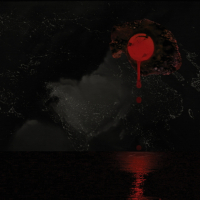
I was introduced to Bright Eyes and Cursive at the same time. They were both essential to shaping my high school brain,from the way I thought and believed in art to the way I colored my life. Bright Eyes was more prolific and critically acclaimed, releasing several albums in the time it took for Cursive to drop one. So I listened to Bright Eyes more and eventually they became the "main" band of these teenage years.
It bothers me when people don't get Cursive. When they like or dislike them because they sound like some derivation of Thrice, it's disappointing. Underneath the alt-rock chord thrashing, there's some deeply raw writing that deserves more credit. Tim Kasher seems to rip into his soul for his audience, even at the cost of alienating them, even at the cost of strange meta commentary about the song he's singing. He gets to you, if you listen closely.
Cursive's last album was Happy Hollow, a concept about a fictional small town and its hypocrisies, its complex social troubles, and most of all its religion. Cursive always does concept albums. Domestica, one of their best, was the image of a young marriage run through the wood chipper of divorce. The Ugly Organ saw a dark, cello-flavored look at the nature of expressive art and sadness exploitation. The thing is, when you sing about the dark recesses of your mind so often, at some point you run out of things to say. Once you've admitted everything, even admitting your admittance, you're empty. A lot of bands run into this, Bright Eyes included, and there are different options: You can start to tell stories about other people, with some detachment, or you can get political/philosophical. Happy Hollow did both, and as Pitchfork said, they became a "words band."
Review | Beyond That Is Anybody's Guess
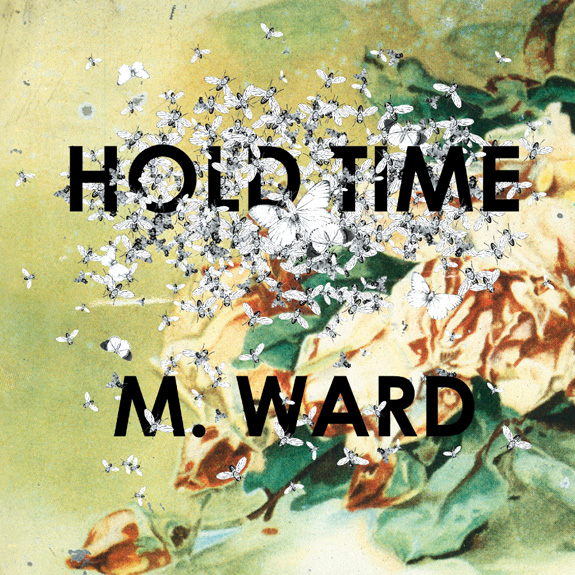
M. Ward is a remarkably talented musician. I became a fan when I stumbled upon "Hi-Fi," a smooth and lightly breezy tune from his 2005 album, Transistor Radio. I was surprised to find that raspy deep voice belonged to a frazzy-haired opie-faced dude named Matt. I delved deeper into his back catalog and found a well of soulful blues & folk rock, all of it well-written, moving and sincere.
Then I saw him perform a special solo concert. Normally, he has a band backing him up, but on this night, it was just M. Ward, a guitar, and a loop pedal. On that night he had six fingers on each hand, because the shit he was playing was stunning. His finger picking speed and the ease of which he pulled off the complicated layering was astonishing. I often enjoy concerts, but I rarely leave an even bigger fan.
Ever since, I've never been hesitant to put M. Ward's music somewhere in my top ten, even five. His most recent album, "Post-War," solidified it with his best songs yet in "Chinese Translation," "To Go Home," and the heart-bursting "Poison Cup." He had reached a mountaintop in his last album. How do you keep the momentum going in Hold Time? This album was also the first since his success with Zoey Deschanel as the other side of the ampersand in She & Him. But he doesn't get to sing in that band. So for that wondrous bluesy croon, we go to Hold Time.
Review | Creation Time at Night
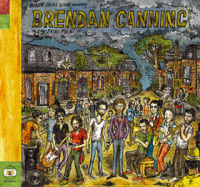
I'm writing another one. I just like to describe music.
Broken Social Scene is, sometimes, my favorite band. It is definitely my favorite band name - it looks cool on a T-shirt and rolls off the tongue. Their sound can be described as "perfect" - they hit that sweet spot on the crossroads of infectious rhythm and moving melodies. Their songs can space you out, break you down or have you dancing. Everything is wrapped up in this supreme, collaborative, sweeping style and flavor. It pulls from everywhere to come up with something unique.
There are rousing, powerful anthems that will have you pounding the desk like "Ibi Dreams of Pavement (A Better Day)" or quiet, thoughtful pieces like, "All My Friends." There are poetic moments captured in music like "Lover's Spit (Redux)" and "Anthems for a Seventeen-year-old Girl." There are crisp beat-centric masterpieces like "Stars and Sons" and "Cause = Time." They are often, according to my specific needs, perfect.
Review | The Words You Sigh
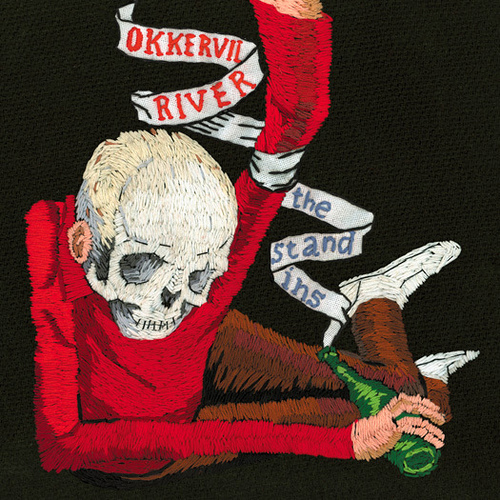
For me, it's always easy to find something I like but hard to find something that completely devours me. Those are the bands that become part of your identity, that never leave your playlist, that you will listen to when you're old in a rocking chair with your grand children. If you find someone that hates them, your brain can't wrap around that possibility. You don't need to be in the mood to listen to them, you just do and it works. I've been blessed to find many - Cursive, Sufjan Stevens, Bright Eyes, M. Ward, Broken Social Scene - and every new album is like going home.
I need this every few months. I need to find songs to absolutely love, to sing every morning when I get up, and to fall asleep to every night. Music just isn't as sweet when something new and beautiful hasn't smacked in the face. A few years ago, when I was going through new music in one of these valleys, a band called Okkervil River took me to a peak.
It was the album, "Black Sheep Boy." It didn't happen from track one or two. Instead it was a slow build, a gathering of strength. The trumpets bled these beautiful notes and the vocals were a bare, beaming wound, but it was the writing that grabbed me. Reading the lyrics to their song can improve it tenfold. At my personal high point of the album, the angry-catchy "Black," you were unsettled as you delved into the words and story. That's one of the hallmarks of Okkervil River - they are a band that will unsettle the shit out of you if you let them. Plenty of bands make you happy, plenty more make you sad, and some entire genres are dedicated to scaring you or channeling your anger. There are a few bands that hit that subtle, delicate spot of unsettling. It's rare and real, and one of the few things that carries over into the way you live your life.
Review | Scales Always Find a Way to Level Out

Bright Eyes is, sometimes, my favorite band. It depends on when I'm asked and who asks me. Either way, they're up there and untouchable in my mind. I first heard of them from a friend I talked with through the internet. I finally heard them when browsing through my sister's plethora of MP3s on the family computer. They were the gateway band that led me to the wide, wide, world of independent music, a huge source of enjoyment in my everyday life. Just the amount of money this band has led me to spend on the genre -- damn. It was definitely life changing in many ways, and it feels great to claim that.
Back then, I had never heard arrangements so interesting & layered, or lyrics so moving & well-crafted. Every night, I laid down with my CD player under my pillow listening to these tracks. I was in awe of how well someone could say exactly what they wanted to in a song, yet still have it rhyme & fit the structure of the song. It was supernatural. It was someone speaking the language of songwriting so fluently that it was stunning.
Their latest full studio effort, Cassadaga (cah-suh-day-guh) , is just about to be released. Advanced copies & pre-orders have already reached the hands of their many fans, and reactions are leaning to one side: the bad side. The band has taken a turn for a more traditional country western/folk/americana sound. Gone are the introspective, moving, and maybe even whiny songs meant purely to express something for the sake of staying sane. In their place are extroverted, political, protest songs constructed for inspiring action, not navel-gazing.

